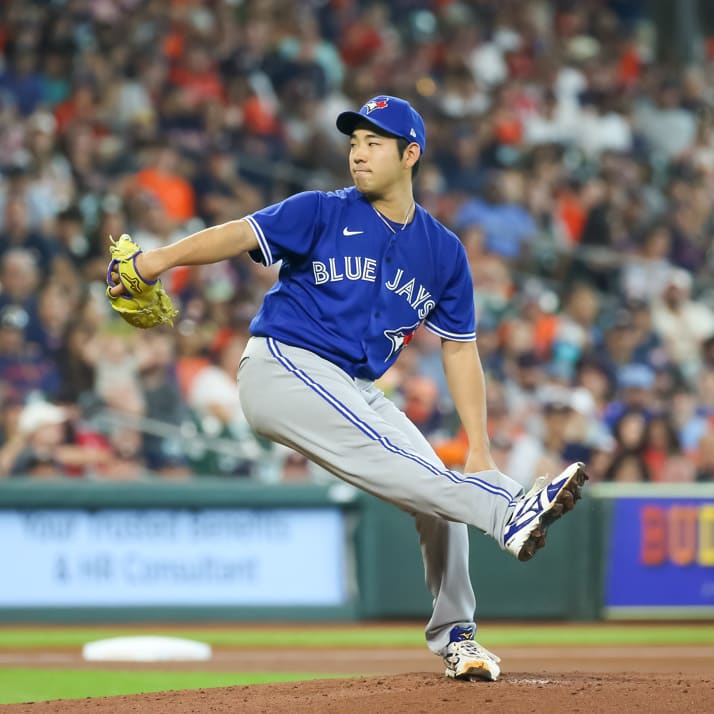This article is part of our DFS Baseball 101 series.
From the moment we're turned on to baseball as young fans, one aspect of it particularly catches our eye: impactful hits. We've all oohed and aahed at the crack of the bat on a ball that's nailed squarely. Perhaps it doesn't quite leave the park, but still caroms off the wall and leads to a close play at second or third base where the runner barely beats the tag.Extra-base hits have always gotten the fans' juices flowing, and as daily fantasy players, they have an even more quantifiable impact on our enjoyment of the game. Doubles, triples and homers exponentially reward our daily fantasy baseball scores and are therefore naturally a crucial metric to consider when crafting our DFS selections.
ISO Explained
As has typically been the case with other advanced metrics, Isolated Power (ISO), a measure of the number of extra-base hits a player averages per at-bat, was borne out of a need to take a more nuanced approach to hitting performance. Conventional batting average provides us a look at the final "meal" the hitter has cooked up, but never discloses the "recipe" that was used to produce it. ISO delves into the ingredients of that number by providing us a clear picture of something that's of paramount importance in daily fantasy baseball analysis: degree and frequency of impactful contact.
Baseball analytics site Fangraphs provides us with the formula for ISO:
ISO = ((2B) + (2*3B) + (3*HR)) / AB
Like with other advanced metrics, the hitting events being measured are progressively weighted to differentiate between their importance, though not in exact proportion to their value in an actual game. In other words, while a triple is not worth double the value of a double in a real-world context, it is weighted in this manner within ISO's formula to provide a differentiation of value.
Another important aspect to keep in mind when utilizing ISO is that it is not park-adjusted. In other words, you'll always want to factor in what type of environment a particular hitter plays half his games in when drawing conclusions from his ISO. A player for the Colorado Rockies, Toronto Blue Jays or Cincinnati Reds, for example—teams that play their home games in stadiums that decidedly favor hitters—is very likely to see a boost in their power numbers over a player of equal ability who may play 81 games a year at a pitchers' park like AT&T Park or Petco Park.
Parameters of Performance for ISO
| Rating | ISO |
| Excellent | 0.25 |
| Great | 0.2 |
| Above Average | 0.17 |
| Average | 0.14 |
| Below Average | 0.12 |
| Poor | 0.1 |
| Awful | 0.08 |
Use of ISO in Making Lineup Selections
The use of ISO for making selections for daily fantasy baseball is fairly straightforward, but the hard-and-fast rule of not utilizing any one metric in a vacuum certainly applies. It's even important to keep in mind that not all ISO figures are created equally, as two players with the same rate of extra-base hits per at-bat can still have vastly different on-base percentages and contact rates, for example.
Thus, when faced with two players with identical ISOs but a marked difference in say, batting average, you would very likely be inclined to go with the better overall hitter, all other things being equal.
Harkening back to what we stated earlier about park factors, you want to keep a hitter's ISO splits in mind when setting your daily fantasy baseball lineups. Particularly with players that have the benefit of playing half their games in hitters' parks, have a glance at their road ISO numbers, over an extended sample, if possible. In early season cases, review the data from the prior year to make an assessment over a more sizable sample. While most good hitters are good hitters whether they're taking their hacks at Coors Field or Petco Park, it's unwise to ignore the very real effect that a stadium can have on the frequency of extra-base hits generated.
On the subject of splits, a hitter's overall performance against each handedness of pitcher always has to be considered when utilizing advanced metrics to make daily fantasy baseball lineup decisions. As we've come to observe, we've got our "lefty mashers" and "righty killers" in spades throughout the majors, as well as our more elite hitters that pretty much terrorize all comers on a more-or-less equal basis.
Therefore, just as we keep a watchful eye on the variations in a hitter's wOBA, batting average and other hitting-based metrics against either handedness of pitching, we must do the same with ISO. A hitter's ability to make meaningful contact can certainly be affected by whether they're up against a southpaw or righty, and should therefore always be assessed as part of their overall ISO profile.
Final Caveats
Without question, ISO can be an essential component for daily fantasy baseball research, especially with the amount of scoring importance that extra-base hits carry on different daily fantasy sites. Particularly in tournaments, you're always seeking to maximize upside in each of your selections, and upside is largely defined by the potential for extra-base hits.
That being said, as with other metrics, the sample size over which a number was generated must always be considered. There is certainly danger in rushing to judgment on any baseball statistic that's been generated over a compressed period of time, and doing so can naturally lead to some misguided lineup choices that fall way short of the potential production you may have felt their numbers implied.
Per Fangraphs, ISO is one of those components of the overall meal that needs to "marinate" for an extended period before offering the predictive ability you're seeking when conducting research. A 550-plate-appearance sample has become the suggested benchmark at which ISO becomes a trustworthy indicator of what type of extra-base production a hitter can be expected to generate.
All in all, ISO, when utilized in proper context, can certainly help us narrow down the best potential sources of what we all seek when creating daily fantasy baseball lineups: a nice haul of fantasy points with one swing of the bat.












